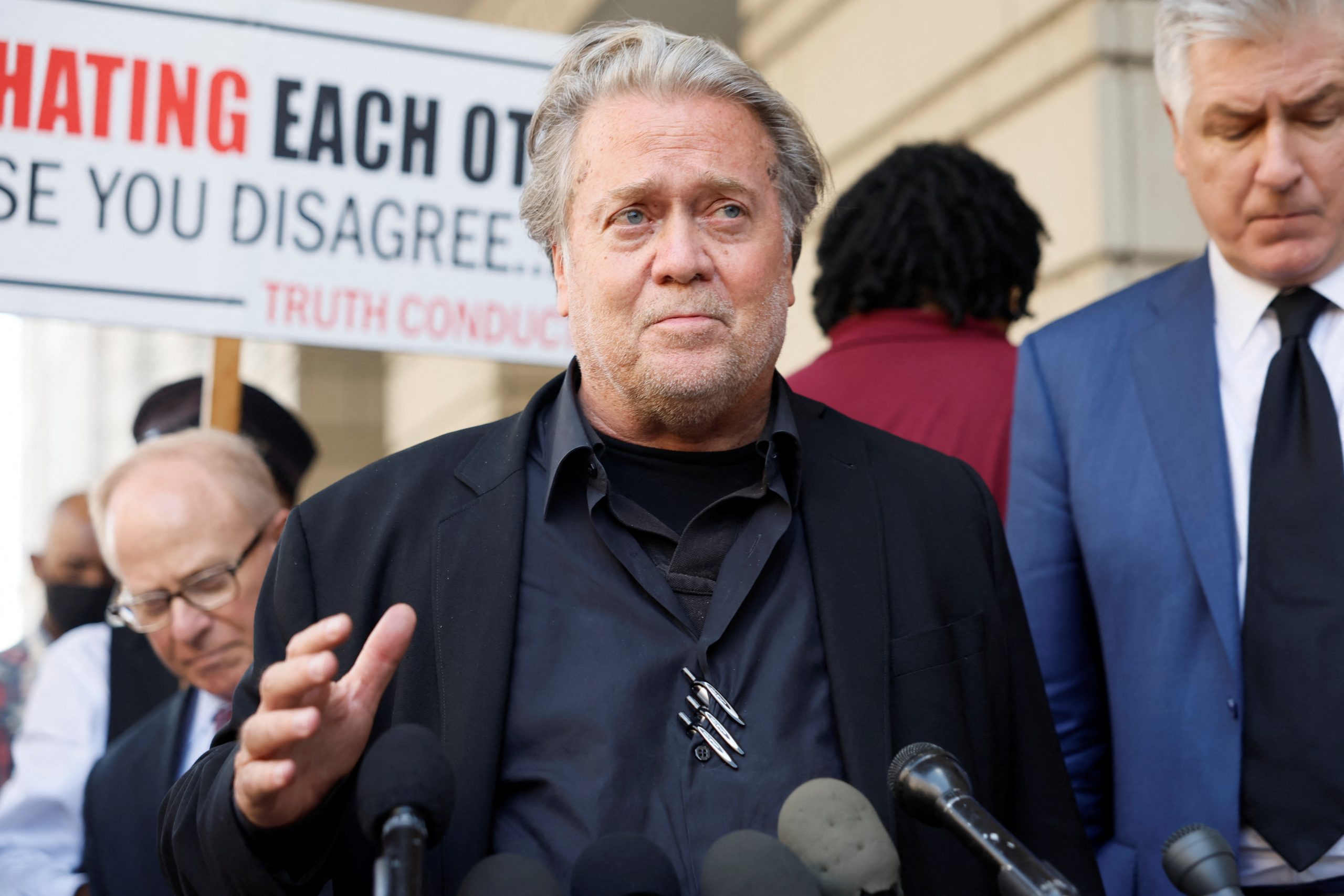
[elfsight_social_share_buttons id=”1″]
Steve Bannon, a key associate of former President Donald Trump, was convicted on Friday of contempt of Congress for defying a subpoena from the committee investigating last year’s attack on the U.S. Capitol.
A jury found Bannon, 68, guilty of two misdemeanor counts for refusing to provide testimony or documents to the House of Representatives select committee as it scrutinizes the events of Jan. 6, 2021.
Each count is punishable by 30 days to one year behind bars and a fine of $100 to $100,000. U.S. District Judge Carl Nichols set an Oct. 21 sentencing date.
The verdict by the jury of eight men and four women, after less than three hours of deliberations, marked the first successful prosecution for contempt of Congress since 1974, when a judge found G. Gordon Liddy, a conspirator in the Watergate scandal that prompted President Richard Nixon’s resignation, guilty.
Bannon was a key adviser to the Republican Trump’s 2016 presidential campaign, then served as his chief White House strategist during 2017 before a falling out between the two that was later patched up.
“We lost a battle here today. We’re at war,” Bannon told reporters after the verdict.
Bannon castigated the “members of that show-trial committee” who he said “didn’t have the guts to come down here and testify in open court.” Bannon elected not to testify in his own defense.
His defense team in closing arguments on Friday suggested to jurors that Bannon was a political target and painted the main prosecution witness as a politically motivated Democrat with ties to one of the prosecutors, including belonging to the same book club. The prosecution said Bannon showed disdain for the authority of Congress and needed to be held accountable for unlawful defiance.
Prosecutor Molly Gaston told jurors the attack represented a “dark day” for America, adding: “There is nothing political about finding out why Jan. 6 happened and making sure it never happens again.”
Evan Corcoran, one of Bannon’s attorneys, told jurors, “The question is, ‘Why? Why was Steve Bannon singled out?”
After the verdict, David Schoen, one of Bannon’s attorneys, promised his client will have “a bullet-proof appeal.”
The judge limited the scope of the case Bannon’s team could present. Bannon was barred from arguing that he believed his communications with Trump were subject to a legal doctrine called executive privilege that can keep certain presidential communications confidential and was prohibited from arguing he relied on legal advice from an attorney in refusing to comply.
The trial featured two days of testimony. Prosecutors questioned only two witnesses. The defense called none.
The conviction may strengthen the committee’s position as it seeks testimony and documents from others in Trump’s orbit. Trump last year asked his associates not to cooperate, accusing the committee of trying to hurt him politically. Several rebuffed the panel.
Another former Trump adviser, Peter Navarro, was charged with contempt of Congress in June for refusing to appear for a committee deposition. Navarro’s trial is scheduled for November.
The Justice Department opted not to charge Trump associates Mark Meadows and Daniel Scavino for defying the committee despite a House vote recommending it.
The Justice Department charged Bannon last November after the Democratic-led House voted the prior month to hold him in contempt.
Copyright 2022 Thomson/Reuters
